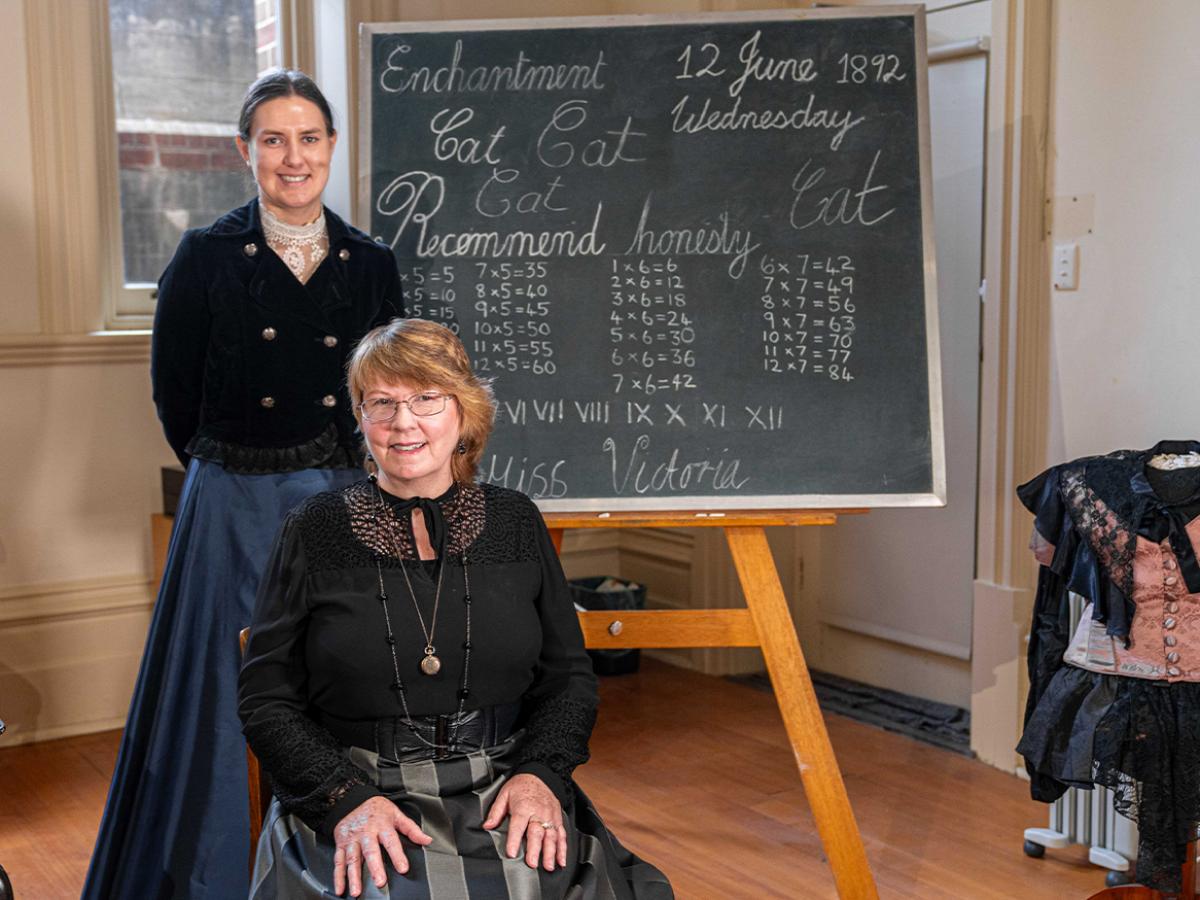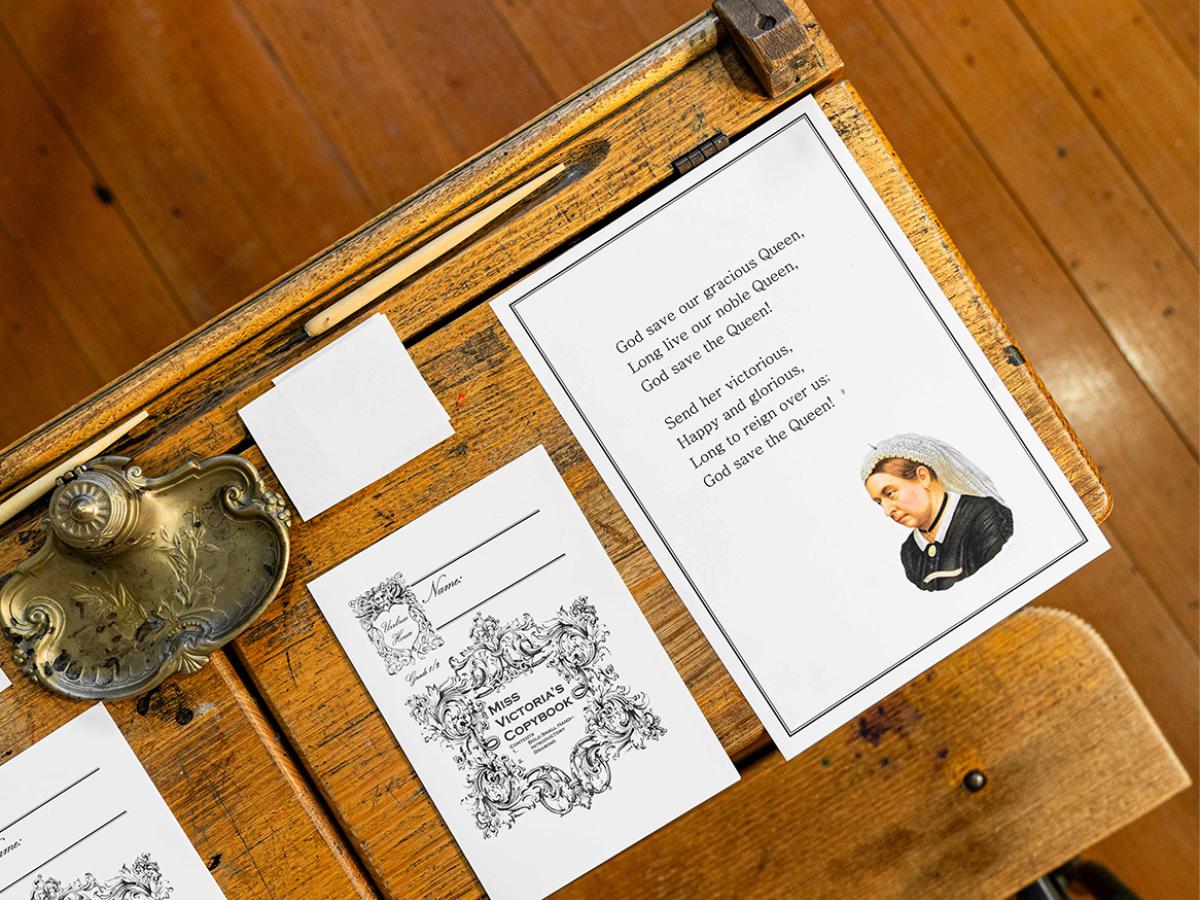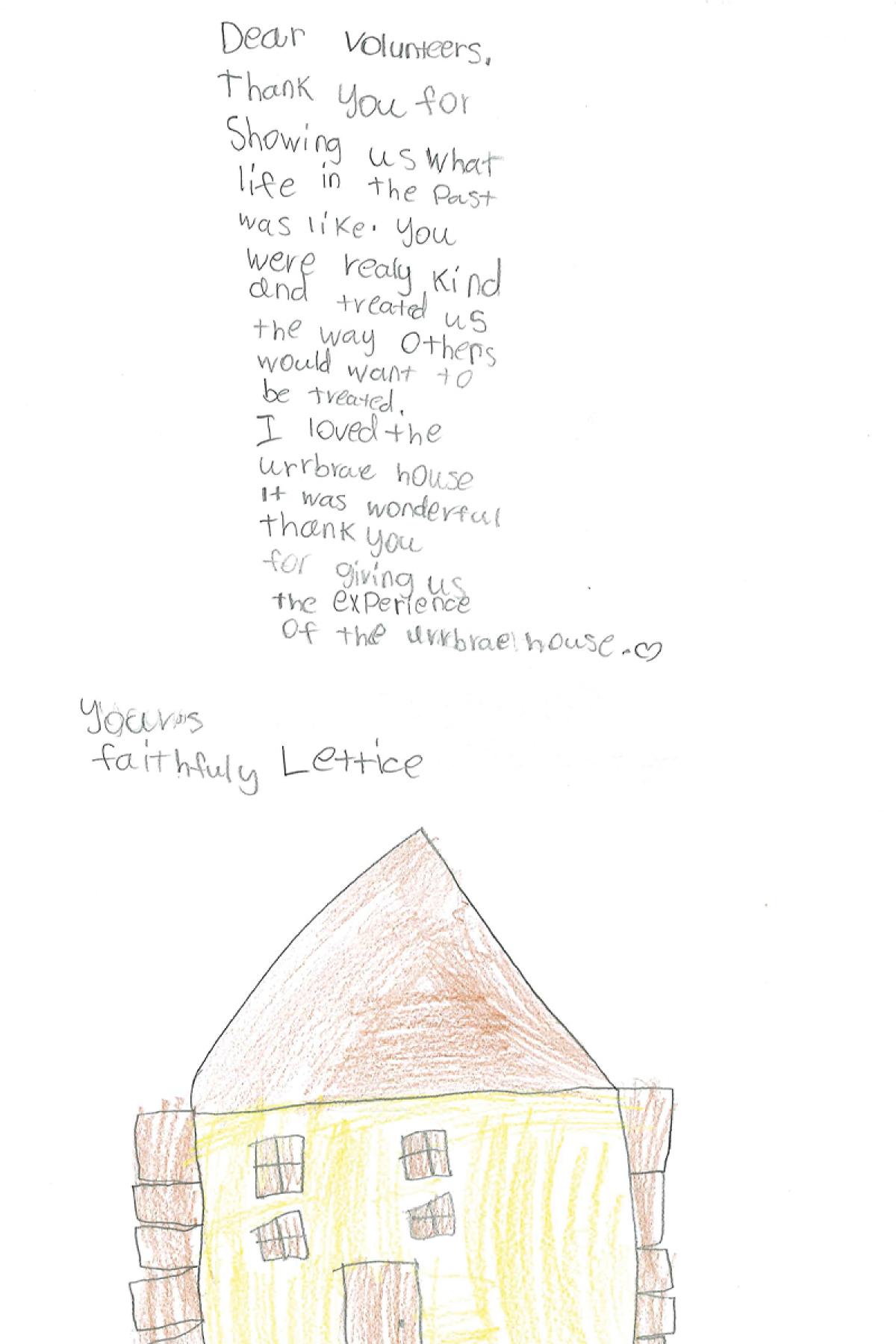Living history

It’s surprising how lively and passionate two people can be when they are both well over 150 years old. It’s also curious how, even though their way of living has remained unchanged since 1892, they appear to be unfazed at the sight of an iPhone.
In the Waite family’s grand dining room sit Mrs Joanna Barr Smith (a close family friend of the Waites and sister to Thomas Elder), and a governess by the name of Miss Julia. They are taking a well-deserved break after the morning’s performance, emerging from character to discuss the Urrbrae House Historic Precinct Schools’ program - a living and breathing history lesson that serves as a creative exploration of the Waite family and the time in which they called Urrbrae House their home.
Since its inception in 2006, the volunteer program has served as an interactive history lesson for primary school children. Upon arrival, students are greeted at the door in the manner of the time, dressed up in costumes and assigned new names such as ‘Master Cedric’ and ‘Miss Eugenie’. Before they know it, their school group has stepped back in time to the 1890s.
Depending on the year level, the group tours the grounds and then either experiences the life of the service staff, how kids their age used to learn (cursive remains a challenge at times) or engage in conversation and croquet with the Waites and Barr Smiths.
“It’s such a beautiful house and to share it with the kids and see the sense of wonder on their faces when they come in is just great,” says Helen James, an alum and former staff member of the University turned volunteer.
As Helen was nearing the end of her time in the world of forensic odontology, she looked to see what was next, and found this opportunity through the University’s volunteer website. That was 2010 and she has been involved in the Wednesday morning program ever since. Helen usually plays the part of Mrs Barr Smith but sometimes she is also known to don the costume of one of the ‘naughty’ laundry maids which she finds great fun.
With the active imaginations of young kids running wild, the volunteers keep it as grounded as they can, but of course upon seeing the old library, staircases and intricately designed fireplaces they naturally conclude that it is quite like Harry Potter, to which Helen says as Mrs Barr Smith: “I don’t believe I know Mr Potter.”

Beyond the costumes and the setting, it’s the differences in everyday life that tend to capture the children’s imaginations: the classroom with its straight lines of hard wooden desks and ink wells; the sheer amount of work done by servants in a time before washing machines and microwaves; and the art of conversation in an era without screens.
“It was hard work in those times running a house – the washing, the cooking and keeping the 20 or so fires alight to keep the place warm,” says Maddy Zweck, who today played Miss Julia but is also known to play Elizabeth, daughter of the Waites (her favourite).
While looking for work during her studies, Maddy stumbled across the program in 2018, and continued with it after moving into her job as a site interpreter and retail assistant at Adelaide Gaol.
“I take my Wednesdays off to come here. It's the best part of my week,” says Maddy, who also did not initially know much about the characters and the world she would soon inhabit. “The more you learn about the Waites the more you’re amazed by the legacy they left behind.”
Although most of the Waite children were adults by 1892, they did have governesses to teach them during their early life. For the sake of the program, the governesses are there to instruct the children of Mrs Waite’s guests, but the governesses aren’t the only ones turning Urrbrae House into a classroom.

It’s such a beautiful house and to share it with the kids and see the sense of wonder on their faces when they come in is just great.
The cook will often test the older and uneducated servants with simple equations during the tour, the servants will play dumb and answer questions incorrectly, giving the kids a chance to proudly step forward and let them know the right answer – one of many key moments that keeps schools coming back.
“Last year each child from one school wrote a card for us to tell us what they thought, and they all loved it, saying thank you and including little drawings, so we always get positive feedback,” Maddy says.
In 2018, the UNESCO (United Nations Educational, Scientific and Cultural Organisation) Clubs’ Adelaide Chapter recognised the program with an achievement award, presented by alum and then State Governor His Excellency the Honourable Hieu Van Le AC.
Such recognition is rewarding, but it’s the simple joys for volunteers, staff and the children, creating a fun, interactive and insightful history lesson time and time again, that keeps it alive.
With the costumes back in the wardrobe for another week, and the volunteers once again transported to 2024, they happily head off about their lives, knowing they will soon have the chance to step back in time once again.
Written and photographed by Isaac Freeman, Lumen Photographic Editor and Communications Assistant at the University of Adelaide.
Looking to volunteer at the University? There are many opportunities across a broad range of areas. Find the right role for you.
